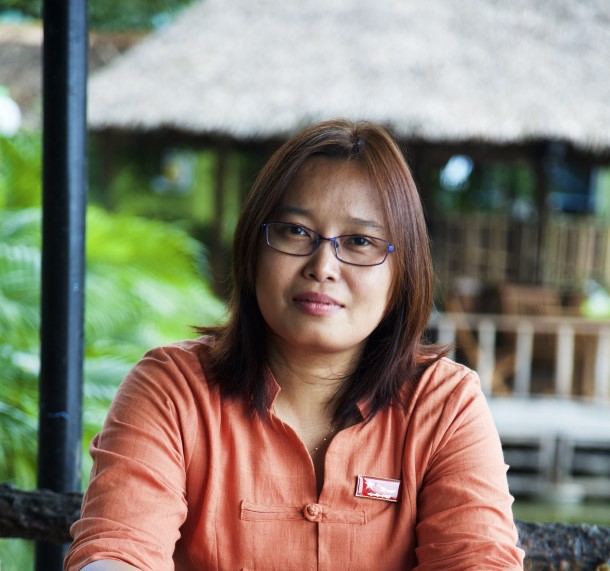Since the return of military rule last year, Myanmar has been a thorn in the side of regional countries. As Myanmar is a member of the Association of Southeast Asian Nations (ASEAN), many countries have urged the 10-member bloc to play the role of mediator in solving the crisis caused by the coup. Plus, some neighboring and regional countries are still sitting on the fence while engaging with the regime, which has killed more than 1,700 people so far.
In this excerpt from an interview with The Irrawaddy, Foreign Minister Daw Zin Mar Aung of Myanmar’s shadow National Unity Government shares her impressions of those countries.
Read the full interview here.
Many countries, including the US, endorse ASEAN’s centrality. But ASEAN still cannot act. And it is mostly on good terms with the regime. The US backs ASEAN though it is aware it won’t be successful. What could Washington do?
While the US considers ASEAN as an initial step, we cannot reject it completely. But the US should think about a Plan B in case that approach does not work. We have always called for an innovative approach. The international community should not use 20th-century definitions of sovereignty and diplomatic relations to handle Myanmar in a 21st-century context.
It can no longer use old methods to approach Myanmar. It has been proven in previous decades that the old approaches were unsuccessful. And ASEAN alone cannot handle Myanmar’s crises.
ASEAN and US envoys should work together. As the EU has appointed a new envoy, we have suggested that these envoys should collaborate and take a more innovative approach.

Which countries are not helping the revolution?
I told the Indian media in an interview that some neighboring countries engage with us but they also deal with the regime. We can understand them.
Our revolution will win. I tell them to cooperate with us and when we win, we will remember who stood with us in our struggle. This is true for individuals.
We record who our friends are and who are sitting on the fence, which will shape our future relations with them.
Does that include India?
Some countries want to help but lack the strength. Others have the strength but they are too focused on their interests and fail to act decisively. If they want to protect their interests, I urged them to stand by us.
I guarantee that their interests will not suffer. The NUG has the public’s support. The day when people don’t like us will be the day we fail. Our neighbors should listen to our people, and cooperate and support the revolution.
That’s why I was critical during the Indian interview. India is the biggest democracy in the world. It should more actively and decisively back democracy in Myanmar. It is a major regional power. I was critical because India should boldly shoulder its role and take action.
What about China?
China is important. Its political situation differs from that of India. I say democracies should act like real democracies. To be pragmatic, we have to engage diplomatically with China. Both India and China are important to us. We maintain our engagement with China. We are taking a pragmatic approach.
What do you expect from China?
At least China should not legitimize the junta and its leaders and say it is a legitimate government. We have repeatedly said that and asked China not to ignore the 2020 election results. We understand China does not oppose that.
Cambodia has increased its ties with the junta and Japanese representatives have attended the regime’s events. Do these countries support the NUG?
This is a difference between Myanmar and Ukraine. EU countries stand collectively by Ukraine. This gives Ukraine many advantages. But it is different in our region. There are dictatorial states and others that favor democracy.
But they are also divided. Even democracies like Japan and South Korea are different. South Korea has been more decisive while Japan focuses on negotiations.
Japan is concerned China might fill a vacuum if it refuses to engage with the regime. It is a balancing act.
Asian countries accept the principle [of rejecting the regime]. But in reality, they do not take a tough stance and maintain ties with both the regime and us. We have to monitor their moves and engage with them.
What is your message to regional countries?
It is simple. When our revolution wins, it will contribute to long-term stability and development in the region. If our revolution fails, crises will keep happening in Myanmar and it will continue to be a troublemaker in the region.
But if the people win, Myanmar will contribute to regional stability and development as a fully established democracy. Other countries should boldly stand by us and support our revolution.

















